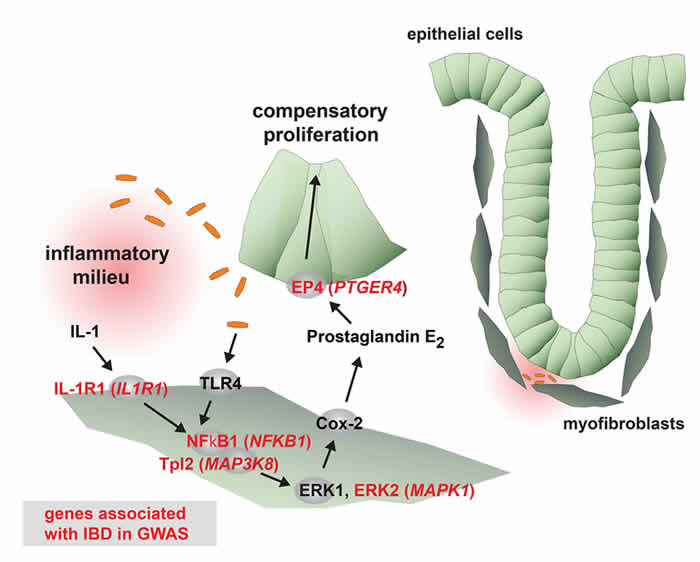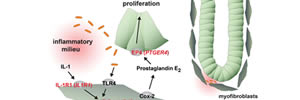23/10/2014
Researchers aimed to elucidate the functional role of Tpl2 kinase in the gut, a molecule which has a well-established pro-inflammatory function in hematopoietic cells but recently identified also as a genetic risk locus for Inflammatory Bowel Diseases in humans. They showed in mouse models of colitis that Tpl2 plays a dominant protective role in the gut upon epithelial injury and demonstrated in conditional tissue-specific Tpl2-deficient mice that this effect is mediated by the sub-epithelial intestinal myofibroblasts (the mesenchymal cells underlying the intestinal epithelium). These cells apparently sense the milieu generated by a damaged epithelium (e.g. by LPS or IL-1β) and promote compensatory epithelial proliferation and intestinal homeostasis through the activation of the Tpl2-Cox-2-Prostaglandin E2 molecular pathway. This study introduces a hitherto unsuspected role of subepithelial myofibriblasts in the regulation of intestinal epithelial cell homeostasis by direct sensing of innate signals or tissue damage. Furthermore it predicts that genetic or other factors impeding the function of the Tpl2-Cox2-Prostaglandin E2 axis in myofibroblasts may confer risk for the development of Inflammatory Bowel Diseases. Following diagnostic identification of the activity of this pathway in individual patients, pharmaceutical reinforcement rather than inhibition of this pathway may be envisaged in the development of future personalized approaches for the treatment of IBD in humans.
Research Highlight in Nature Reviews Gastroenterology & Hepatology (pdf)
F1000 Article recommendations (pdf)

